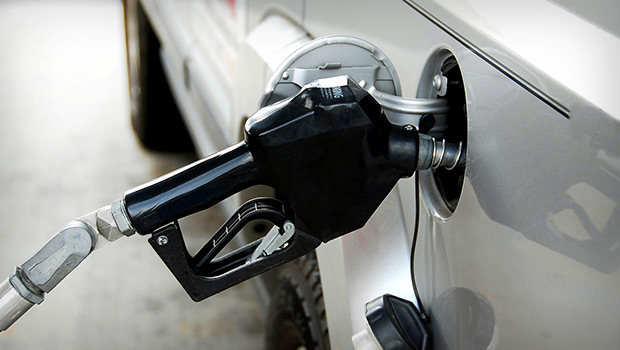Fuel prices for the month of March have been announced in the UAE by the Ministry of Energy on February 28, 2018. With a slight decrease announced in fuel prices for the first time in 2018, the month of March has brought a much awaited relief to motorists who have been under severe pressure to manage their fuel expense due to fluctuating fuel prices. The first two months of 2018 witnessed a record-breaking increase in fuel prices, which had deepened the financial worries of motorists on a tight budget.
Reason behind the Decrease in Fuel Prices for March
The fuel prices in the UAE are linked with the price of Brent (Global Benchmark for Crude Oil), which means fluctuations observed in the price of Brent can directly affect the fuel prices in the UAE. The price of Brent hit $71 per barrel in January, which was the highest since 2014. This surge in the price of Brent resulted in a significant hike in fuel prices for the month of February and in fact, the fuel prices in February were at their highest since August 2014 in the UAE.
The price of Brent has stabilized to a reasonable extent after witnessing a massive hike in January. The price of Brent was recorded at $66.52 per barrel at the end of February, which has brought the fuel prices down in the UAE.
Also read: 7 Fuel-Saving Driving Tips for Motorists in the UAE
New Fuel Prices in the UAE
A slight decrease in the fuel prices has been observed for the month of March in the UAE. The price for all types of fuel has been decreased, which will certainly help motorists to better manage their fuel expense this month.
Here are the new prices categorized on the basis of fuel-type as per the announcement of the Ministry of Energy:
- Price of Special 95has come down from AED 2.25/Litre in February to AED 2.22/Litre in March.
- Price of Super 98 has decreased to AED 2.33/Litre in March from its February price of AED 2.36/Litre.
- E Plus-91 has a new price of AED 2.14/Litre, which has come down from AED 2.17/Litre in February.
- Price of diesel has witnessed the most notable decline. The price for diesel in March will be AED 2.43/Litre, which has decreased from AED 2.49/Litre in February.

The prices for all types of fuel are inclusive of 5% VAT, which has been implemented in the UAE on all business/commercial activities from January 1, 2018. The authorities have predicted that the average per barrel price of Brent will be $60 throughout 2018 with a slight decrease expected towards the end of the year. This comes as a good news for motorists on a tight budget as the fuel prices are also expected to either remain stable or decrease with the gradual decrease in the price of Brent during 2018.
Status of the OPEC Deal
Fuel prices in the UAE have also been influenced by the OPEC deal that was first signed in 2016 between oil exporting countries. The OPEC agreement was designed to reduce the production of oil by about 1.8 million barrels per day in order to stabilize the crude oil prices. This deal was initially agreed to expire in May 2017, however, it was later extended until March 2018. The OPEC agreement has been a major reason behind fluctuating fuel prices in the UAE and as this agreement will expire in March, fewer fluctuations in fuel prices can be expected in the remaining months of 2018.

Also read: Top 5 Fuel-Efficient Cars under AED 60,000 in the UAE
What Motorists can do to manage their Fuel Expense?
With the slight decrease in fuel prices, it will be relatively easier for motorists to handle their fuel expense this month, however, motorists have to learn ways of better managing their fuel expense so that any fluctuations in the prices do not affect them a great deal.
Here are the practices that motorists can follow to better manage their fuel expense:
- Frequent use of public transport can limit the use of your private vehicle, which can minimize your fuel expense considerably.
- Aggressive driving should be avoided as it can have a bad effect on the fuel-efficiency of a vehicle.
- Making an effort to schedule and complete daily errands with fewer trips can also help in managing fuel expense efficiently.
- Regular maintenance of a vehicle also helps in improving its fuel-efficiency so, never miss a pending checkup of your vehicle if you are concerned about managing your fuel expense effectively.
While the above-mentioned practices can help motorists on a tight budget, upgrading an old car to a hybrid or Electric Vehicle (EV) can be a long-term solution to better manage fuel expense. EVs in particular are an eco-friendly alternative to the combustion engine vehicles and are equipped with an electric motor to generate power. The electric motor works with the help of electric batteries, which means that buying an EV can completely relieve you from the financial worries caused by regular fluctuations in fuel prices.
The modern-day EVs offer a good driving range, which makes them an ideal daily commuting option. Apart from these advantages, there are some notable incentives offered to EV buyers and owners in the UAE such as easy bank loans for EVs, free parking zones, free charging stations and a lot more across the UAE.
To learn about the advantages of owning or buying an EV in the UAE, read our blog titled “New Incentive Program Encourages the Buying of Electric Vehicles in the UAE” click here.
If you are planning to upgrade your vehicle to an electric vehicle, then don’t forget that with us, you can sell your used car in just 30 minutes while all the post-sale paperwork is handled by SellAnyCar.com’s team.



